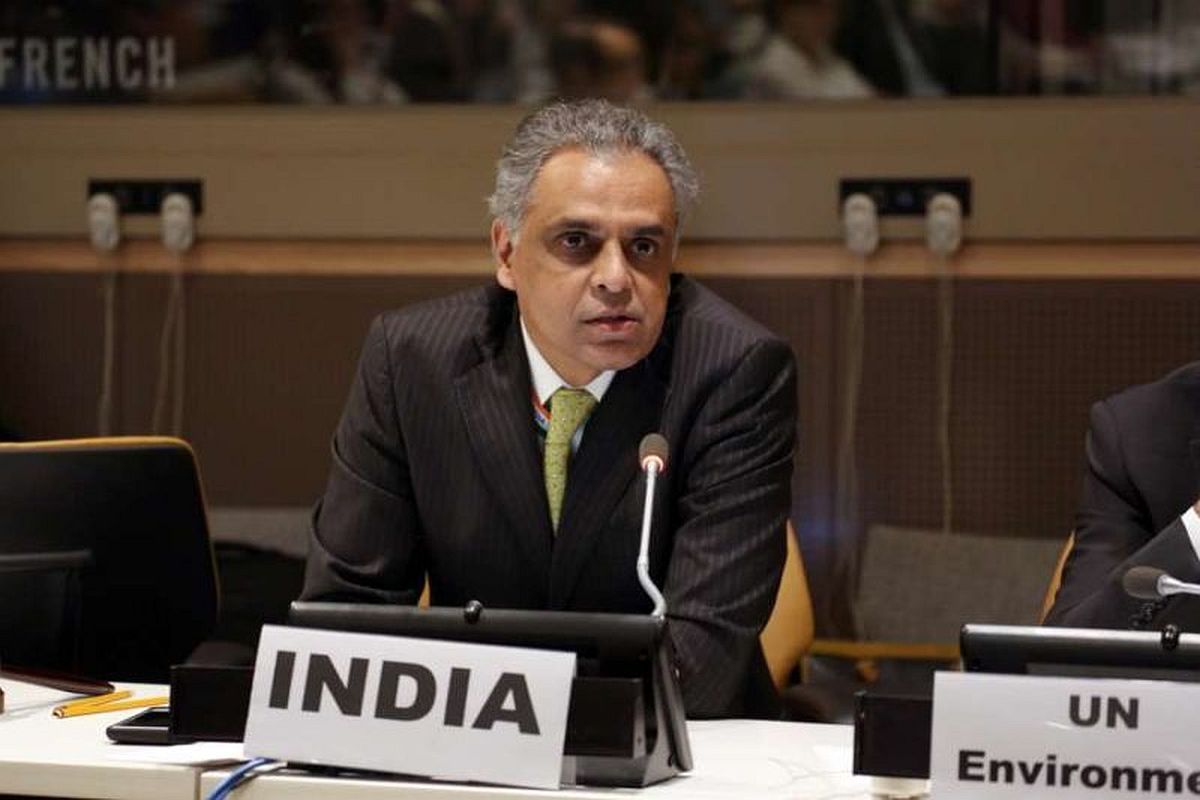At polarised UNSC meet on Iran attack, only consensus is Middle East tensions shouldn’t escalate
The Council immobilised by its divisions did not take any action and the meeting was only an occasion for venting.
The UNSC resolution comes after the US on Wednesday circulated a draft resolution to the UN Security Council — with British and French support — to blacklist the JeM chief.

India's Permanent Representative to the UN Syed Akbaruddin (Photo: IANS)
The UN Security Council ordered countries worldwide to step up the fight against terrorism funding Thursday by ensuring they have laws that make it a serious crime to fund terrorist acts.
The council unanimously adopted a French-drafted resolution that was the first stand-alone measure dedicated specifically to counter the financing of terrorism.
The resolution calls on all states to “ensure that their domestic laws and regulations establish serious criminal offences” to prosecute those who collect funds or provide economic resources to terrorist organizations.
Advertisement
The binding resolution was drafted under chapter 7 of the UN Charter, which means it can be enforced with sanctions.
Welcoming the resolution, India’s Permanent Representative to the UN, Syed Akbaruddin stressed on the need for effective implementation.
“Global community is impatient for action. Going forward the UN collectively needs to do more and to do it much more effectively. For its part, India will be a willing partner in this endeavour,” he said
“Terrorists are going to be ever more creative in finding ways to violate rules,” Akbaruddin said.
Indirectly referring to Pakistan, the Indian representative said the “unfortunate reality is that states who are apologists for terrorists will continue to provide alibis to justify their actions and inaction too as was done by a serial offender earlier today”.
India had on Thursday expressed disappointment over Pakistan’s response to its detailed dossier on the Jaish-e-Mohammed’s complicity in the cross-border terror attack in Pulwama and the presence of terror camps of the dreaded outfit on Pakistani territory.
“Regrettably, Pakistan continues to be in denial and even refuses to acknowledge Pulwama as a terror attack. It has not shared details of credible action, if any, taken by it against terrorists or terrorist organisations based in territories under its control,” Spokesman for the External Affairs Ministry Raveesh Kumar said.
His comments came after Pakistan called Indian High Commissioner Ajay Bisaria to the foreign office in Islamabad on Wednesday evening and told him that it had found no evidence of the JeM’s involvement in the terror attack at Pulwama on 14 February in which more than 44 CRPF personnel were killed.
Pakistan had also claimed that no terror camp existed at 22 locations shared by India in the dossier New Delhi gave to Islamabad following the Pulwama attack.
The UNSC resolution comes after the US on Wednesday circulated a draft resolution to the UN Security Council — with British and French support — to blacklist the JeM chief.
The draft resolution condemns the suicide bombing and decides that Azhar will be added to the UN Al-Qaeda and Islamic State sanctions blacklist.
There have been four attempts through a UN sanctions committee to add Azhar to the blacklist. China blocked three previous requests and put a technical hold on the latest one, which could last up to nine months. JeM itself has been on the UN terror list since 2001.
UN counterterror chief Vladimir Voronkov told the council that the measure “comes at a critical time” as recent attacks have shown that terror groups have access to financial flows through legal and illegal means.
The resolution urged countries to establish financial intelligence units to strengthen efforts to counter terrorism financing and to share information on their investigations.
Marshall Billingslea, president of the Financial Action Task Force (FATF) which combats money-laundering and terror funding, said less than a fifth of countries were applying laws that prosecute suspected terror financiers as criminals.
Billingslea said the resolution would also contribute to halting ransom payments for kidnappings by terror groups, which have become a major source of funding.
“States must not allow hostage-takers or terrorists to benefit from ransom payments,” Billingslea told the council.
“This is crucial, in particular as kidnapping for ransom has become the major funding source used by the remnants of Daesh around the world,” he told the council, referring to the Islamic State group.
The resolution will help the FATF ratchet pressure on more than 50 countries to pass new legislation on countering terror financing.
The council has adopted resolutions aimed at choking off revenue to the Islamic State jihadist group and Al-Qaeda-linked fighter, including a major text in 2015 that allows for sanctions.
But the latest measure encompasses in one text various initiatives contained in a range of resolutions.
(With agency inputs)
Advertisement